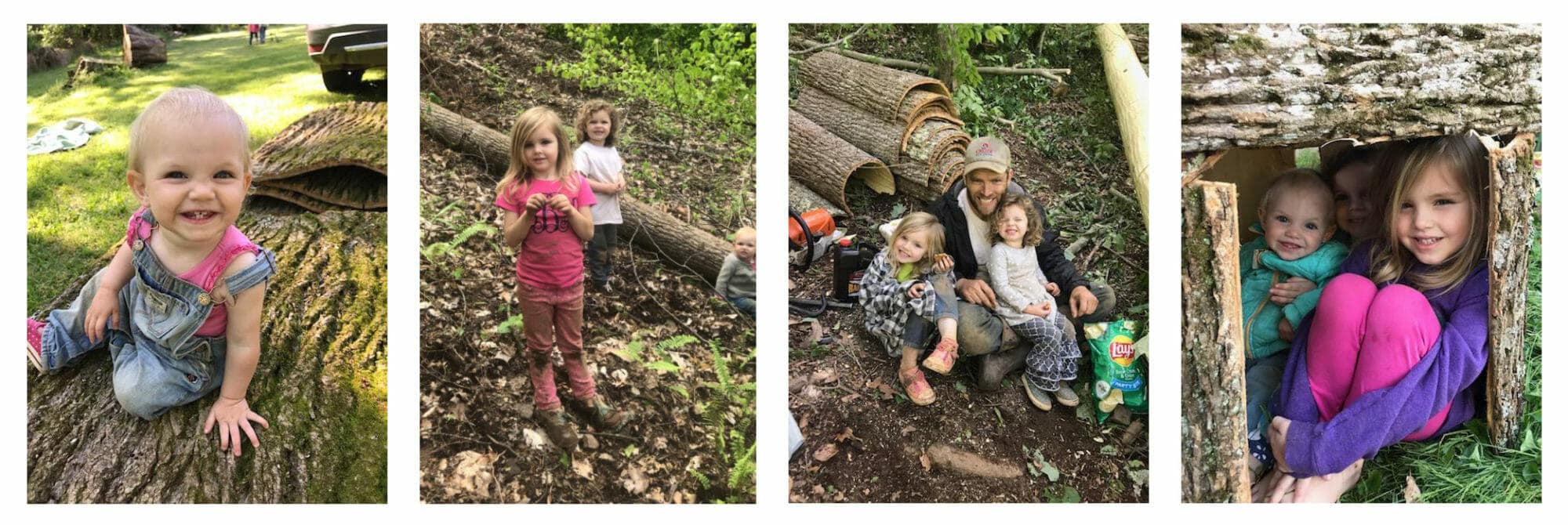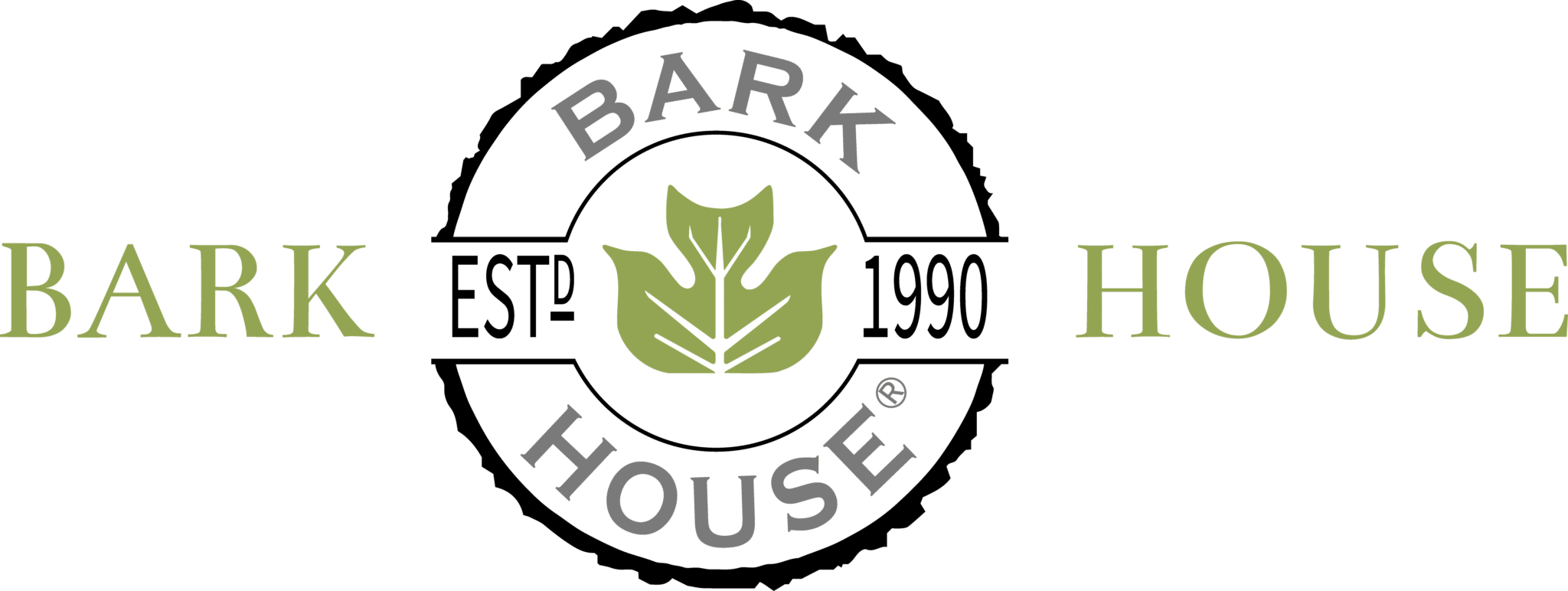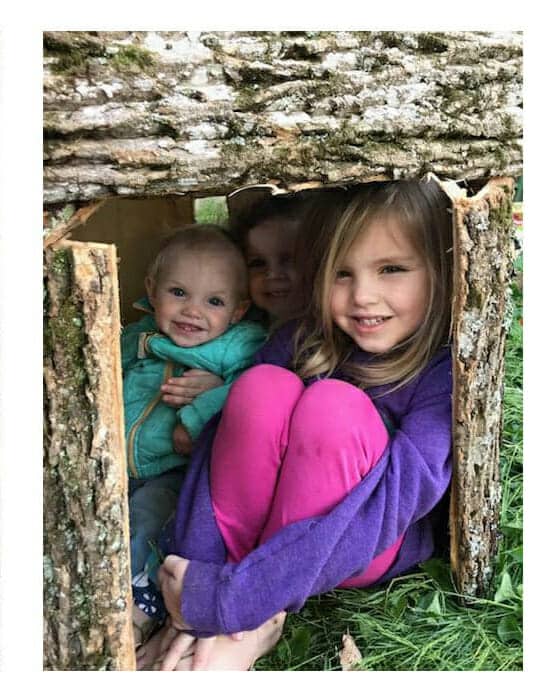See The Benefits Of Restorative Growing, Sourcing, and Harvesting
Work at Bark House began in 1990 with a focus on the well-being of Appalachian forests and the people working and living in them.
 In 1990, we embarked on a new manufacturing company framework to honor the strategy of trees and forests through cleanly manufactured products and regenerative processes. We sought to benefit Appalachian forests and the families working and living in them. Bark House products support landowners and eco-loggers in Appalachia to remain connected to the land that they cannot abandon. The aim is to restore Appalachian forests and families through a regenerative development strategy.
In 1990, we embarked on a new manufacturing company framework to honor the strategy of trees and forests through cleanly manufactured products and regenerative processes. We sought to benefit Appalachian forests and the families working and living in them. Bark House products support landowners and eco-loggers in Appalachia to remain connected to the land that they cannot abandon. The aim is to restore Appalachian forests and families through a regenerative development strategy.
By 1998, Bark House met a Mission Goal to expand a positive economic impact to other independent business owners in our community – by training loggers in the proper procurement and handling of RAW™ (Reclaimed Appalachian Wood Waste) or poplar bark for shingles. Company co-founder Marty McCurry trained 50 loggers the first year and increased their income for a poplar log substantially. Product demand had grown enough that orders could not be met through in-house harvesting. The work of peeling back the bark is hard but economically worthwhile – and environmentally sound. Today, The Bark House has trained over a thousand loggers from 5 states and 45 counties in Appalachia and works with over 150 independently operated businesses each year. This process increases their income threefold for each log by selling us the waste bark from poplar trees.
Because we were the first manufacturer to design and create bark wall panels, we defined how loggers procured the material, how they interacted with the landowners, and what practices they used on the land. Our goal in working with loggers is based on a regenerative methodology. We aim to support them in following best management land improvement processes. We treat them equitably through transparent processes, by creating a brand-new income stream for previous waste and by keeping them connected working with the land they dearly love.
Bark House supports a forest management strategy that focuses on micro-parcel tree harvests and respects the diversity of living forests. Comprised of approximately 20-acre tracts, the land is owned by individuals who care about it and their community. Nurtured for generations, these stewards want to keep the land healthy and intact for the future. Forest-management plans are implemented that support biodiversity. Only Bark House trains loggers in the proper procurement of bark from felled trees for use in wall panels. This strategy is designed to support loggers with deep reverence to nature to stay connected to it in their work. Two to three-person logging crews with lighter equipment are engaged and maintain better soil stabilization. Bark House monitors forest inventory growth-to-removal and watershed reports, verifying sustainability and environmental health in our region. Only Reclaimed Appalachian Wood Waste (RAW™) is purchased at Bark House. We ensure this by verifying that logs have a disposition.
After ten years of operation, our success in sales saw bark operations spring up with extractive practices that contaminated the marketplace with lower quality products, using compromised methods in the forest and with landowners. It was a time that we feared for the products and processes survival, as the market looked for cheaper substitutes. Today, several loggers sell their material to these operators because they do not track a chain-of-custody (whose property the log came from), they do not have the same quality standards for RAW™ material (including the assurance that the log has a disposition), and they do not all send out tax forms on material purchases.
Appalachia is not new to extractive practices. History has recorded land grabs from wealthy outsiders aiming to rob the land of its “commodities” through mining and strip-logging. Locals were often pushed out of their homes as taxation required a monetary system of trade in a culture where the exchange of goods was the method of payment. We have experienced the negative impacts of government programs placing leaders in positions of trust with the intent to change the “backward culture” of the region. Today, Appalachia is sadly one of the last safe-places to stereotype. As we clearly see today, through numerous social movements, the system in which you live, impacts your options greatly. Loggers are pinched in this extractive system. Many bark-buyers follow extractive practices. Many sawmills have price schedules and scale charts that are constantly changing due to industry fluctuations. It is no wonder loggers sometimes respond in-kind looking to “get theirs” even if it compromises their core values.
To combat extractive practices and mature a regenerative system, Bark House must shift its supply chain from a context that is dependent on the sawmill industry to one that participates in regenerating Appalachian forests and families. This has become more urgent in this time of COVID-19 and Trade Wars with China. Bark House must be able to fulfill its mission to benefit Appalachia, to benefit worldwide clients, and because this is a regenerative process tied to forestry, these actions have larger benefits that include carbon sequestration and climate change remediation. Although Bark House practices the regenerative process, we cannot accomplish this scope – this scale – alone. We need qualified partners.
Our goal is to regenerate our supply chain, but the benefits we will create through this process will reach far beyond the walls of Bark House. Please join us in a One Forest Regenerative Project – One Forest at a time for One World Forest.

